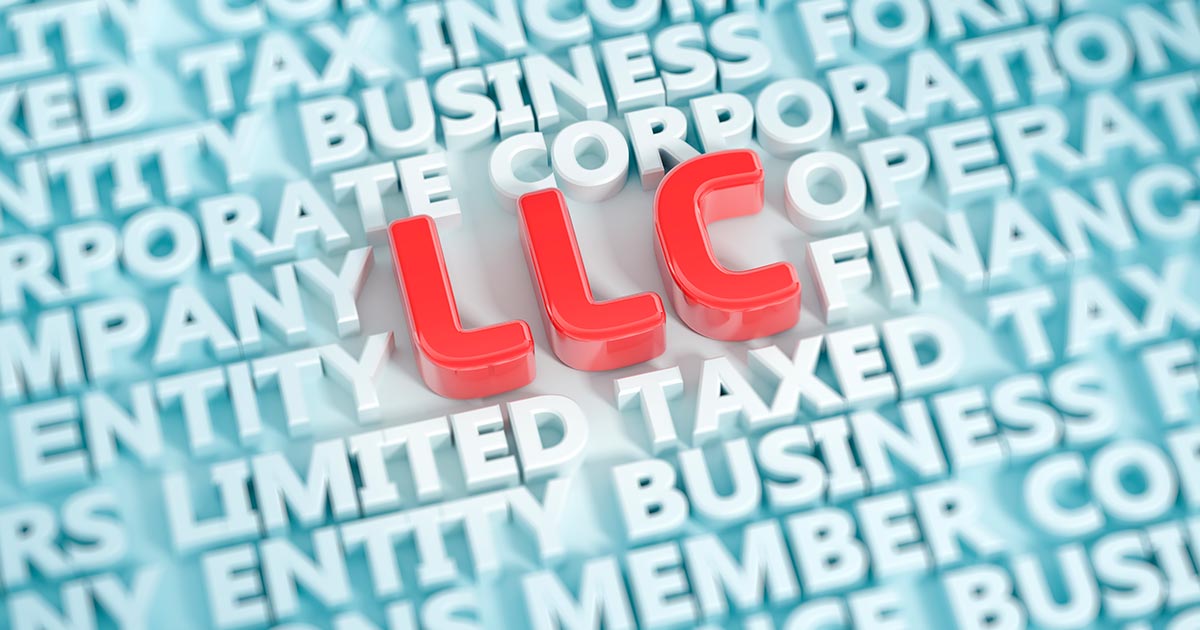Benefits of an LLC

Last Updated: By TRUiC Team
Choosing the best business structure for your startup depends on your startup’s needs, growth trajectory, and more. Generally speaking, opting for a formal business structure, such as a limited liability company (LLC), offers benefits that informal business structures, such as sole proprietorships, can’t offer.
What are the benefits of forming an LLC? We’re glad you asked! Here are the top five reasons why your startup should be an LLC.
Start an LLC today using our free How to Form an LLC guide, or have a professional service form an LLC for you.
Advantages of Forming an LLC
1. Simple to Form and Maintain
LLCs are the simplest formal business structure to form as well as maintain. One reason being, there is far less paperwork. In order to form an LLC, you only need to file the Articles of Organization and draft an operating agreement. In addition, by forming an LLC instead of a corporation, you bypass the complexities of operating a corporation such as holding shareholder meetings.
To maintain your LLC and remain in good standing, you may need to file an annual report or biennial report. However, if your business is located in Alabama, Arizona, Arkansas, Delaware, Missouri, New Mexico, Ohio, and South Carolina — you are not required to file an annual report. We recommend utilizing a registered agent to complete this process accurately and efficiently.
2. Personal Liability Protection
Without personal asset protection, you as a business owner are financially responsible if your business is sued or accrues debt. Meaning, if you do not have personal liability protection, your personal assets such as your savings, home, or vehicle are at stake. Fortunately, by forming an LLC you protect your personal assets with what is called a corporate veil. A legally maintained corporate veil can protect you from losing your personal assets should your business be sued or accrue debt.
3. Tax Benefits
By default, the IRS classifies single-member LLCs as “disregarded entities” and multi-member LLCs as “partnerships,” and both have the benefit of pass-through taxation. Unlike C corporations (C corps) that are taxed twice, you can avoid double taxation by forming an LLC. Basically, this means that an LLC’s profits are taxed on the member(s) personal tax returns, which means all profits are only taxed once at each member's income tax rate. This simplifies and streamlines the process of filing your business’s taxes.
4. Flexible Ownership and Management
When you form an LLC, you have the option to choose between your company being member-managed or manager-managed. This flexibility allows you to choose the best management structure for your business.
For example, if you are operating as a small business where the owners prefer to be involved in the day-to-day operations, it would be in your best interest to opt for a member-managed model. In contrast, a manager-managed LLC is ideal for owners that prefer a more hands-off approach to managing and operating their business.
5. Increased Credibility
As an established LLC, compared to an informal business structure such as a sole proprietorship, you increase the level of credibility and trust your business has with customers. Not only can you form your business under a name other than your own, unlike sole proprietorships and general partnerships, but your business is also registered with the state.
How to Form an LLC
You can start an LLC on your own by following our simple, step-by-step guide:
- Select Your State
- Name Your LLC
- Choose a Registered Agent
- File LLC Formation Documents
- Create an LLC Operating Agreement
- Get an EIN
You can also have a professional service form an LLC for you. Read our review of the best LLC formation services.
LLC FAQ
What is an LLC?
A limited liability company (LLC) is a formal legal business structure. Compared to corporations, LLCs are both the easiest business structure to form as well as maintain without sacrificing tax benefits, management flexibility, and personal asset protection.
What are the advantages and disadvantages of an LLC?
Unlike informal business structures such as sole proprietorships or partnerships, forming as an LLC grants your business certain tax benefits as well as personal liability protection — meaning you won’t be personally liable for your business’s debts or in the event that your business is sued.
Alternatively, startups that expect rapid growth and plan to take on investors, such as venture capitalists and angel investors, may not benefit from forming an LLC and may choose instead to start a corporation.
How much does it cost to form an LLC?
The cost to form an LLC varies depending on the state you’re located in. However, you can generally expect to pay between $50 and $500 to form your LLC and $100 each year to maintain it.
How long does it take to form an LLC?
The standard processing time to form an LLC once your formation documents are received is between two and three weeks. However, some states offer same-day or expedited processing for an extra fee.
How do I change from a sole proprietor to an LLC?
You can change from a sole proprietor to an LLC in five easy steps:
- Name your LLC.
- Choose a registered agent.
- File LLC Articles of Organization.
- Create an LLC operating agreement.
- Get an EIN.


